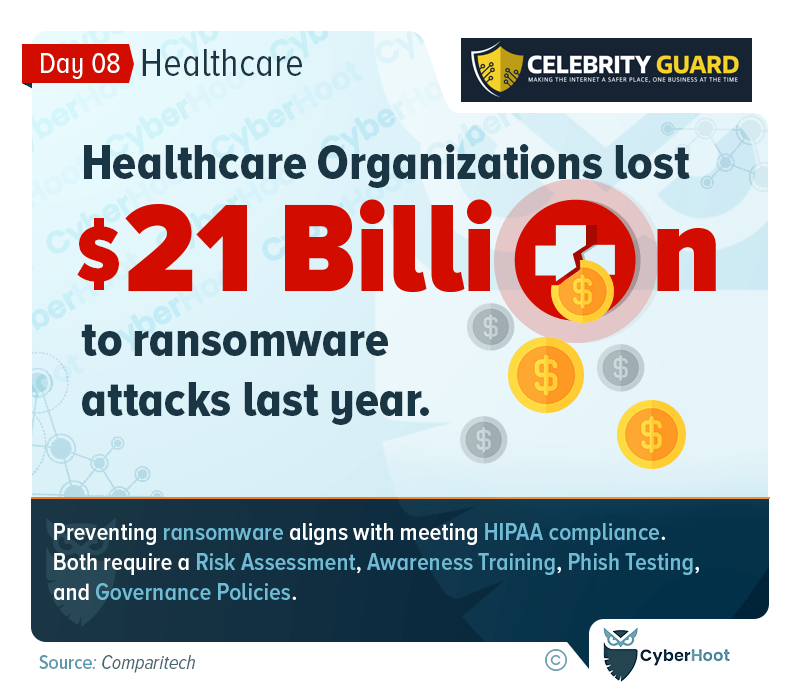In recent years, the healthcare sector has become a lucrative target for cybercriminals, with ransomware attacks costing organizations a staggering $21 billion. As the threat landscape continues to evolve, it is crucial for healthcare organizations to adopt proactive measures to safeguard sensitive patient data and ensure the uninterrupted delivery of essential services. One powerful tool in this arsenal is security awareness training, offering a robust defense against the rising tide of ransomware attacks.

The Ransomware Epidemic in Healthcare: Healthcare organizations are entrusted with vast amounts of sensitive patient information, making them attractive targets for cybercriminals seeking financial gain. Ransomware attacks, where malicious actors encrypt critical data and demand payment for its release, have proven particularly devastating for the healthcare sector. The $21 billion in losses underscores the urgent need for comprehensive cybersecurity strategies.
The Role of Security Awareness Training: Security awareness training is a proactive and effective approach to fortify the human element of cybersecurity, as employees are often the first line of defense against cyber threats. Here’s how security awareness training can play a pivotal role in preventing ransomware attacks within the healthcare sector:
- Recognizing Phishing Attempts: Security training educates healthcare staff on identifying phishing emails, a common entry point for ransomware. By honing their skills to recognize suspicious emails and attachments, employees become adept at thwarting the initial stages of a ransomware attack.
- Best Practices for Data Protection: Healthcare professionals undergo training to understand the best practices for data protection, emphasizing the importance of secure data handling, password hygiene, and encryption. This knowledge empowers them to contribute actively to the organization’s overall cybersecurity posture.
- Incident Response Training: Security awareness training includes simulation exercises for responding to cybersecurity incidents. This prepares healthcare staff to act swiftly and effectively in the event of a ransomware attack, minimizing potential damage and downtime.
- Cultivating a Security-Conscious Culture: Fostering a culture of cybersecurity awareness within the organization is vital. Regular training sessions reinforce the significance of cybersecurity in day-to-day operations, encouraging a collective commitment to safeguarding sensitive patient data.
- Keeping Up with Evolving Threats: Cyber threats are dynamic, and training programs are designed to evolve alongside them. Regular updates ensure that healthcare professionals stay informed about the latest tactics employed by cybercriminals, enabling them to adapt and respond effectively.
As ransomware threats continue to mount within the healthcare sector, the implementation of security awareness training emerges as a critical line of defense. By empowering healthcare professionals with the knowledge and skills necessary to identify and thwart cyber threats, organizations can significantly reduce the risk of falling victim to costly ransomware attacks. Investing in comprehensive security awareness training not only protects sensitive patient data but also fortifies the resilience of healthcare organizations in the face of an increasingly sophisticated cyber landscape.